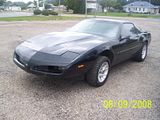Simply amazing. No, it's not missing a decimal poiint, that's over Six Thousand Miles Per Gallon. Some of this has to make it into production vehicles.
http://news.cnet.com/Ethanol-car-win...ht&tag=nl.e433
http://news.cnet.com/Ethanol-car-win...ht&tag=nl.e433



 the less.
the less.






Comment